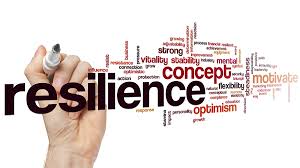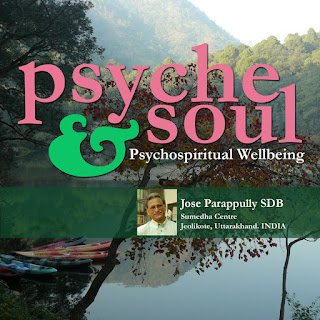|
|
|
Podcast link: | ||
Hello, this is Jose Parappully, Salesian priest and clinical psychologist at Sumedha Centre for Psychospritual Wellbeing at Jeolikote, Uttarakhand, with another edition of Psyche & Soul.
This weekend we shall reflect on the contribution of resilience to health and happiness…
Mr. Rajan’s story in the previous column was not just about hope, it was also about resilience – the capacity to thrive despite adversity, to bounce back from setbacks, from trauma and tragedy and being able to live at even greater levels of wellbeing and satisfaction than before, that is, to flourish.
Resilient people, like the proverbial phoenix, are able to rise up literally from the ashes of their destructive or painful experience and thrive again.
The remarkable way the Hiroshima and Nagasaki is restored and built up from the ashes of nuclear devastation by the survivors is a historical example of resilience.
So also, is the remarkable story of Steve Jobs, an icon in the IT industry, co-founder of Apple, the creative genius behind the iMac, iPod, iPhone, and the iPad. But many may not know that he was dismissed from the company which he had co-founded. The experience did not break him, rather it forced him to reinvent himself. He would later say that this was the best thing that happened to him. It forced him to start again from scratch and scale new heights.
Soon after, he was diagnosed with pancreatic cancer, which doctors thought inoperable. He fought against the disease and survived for few years more, and went on to become one of the world’s most admired creative geniuses.
Steve Jobs did not allow setbacks to dishearten him, rather he used them as stepping stones to climb greater heights. He was truly resilient.
RESILIENCE IS NOT JUST RECOVERY
Resilience is not just about rising from the ashes. It is also about the capacity to maintain high levels of resistance to stressful events. According to psychologist George Bonanno, an expert in the field, resilience enables us to endure upheavals remarkably well, with no apparent disruption in our ability to function and to move on to new challenges with apparent ease.
In contrast to recovery which connotes a breakdown in normal functioning following trauma or loss, leading to high levels of distress or even psychopathology and then gradually returning to pre-event levels, resilience, Bonanno observes, reflects the ability to maintain a stable equilibrium in the face of adversity.
When we are resilient, even when we experience a potentially highly disruptive event, we are able to maintain relatively stable, healthy levels of psychological and physical functioning. We show resilience through our capacity to respond flexibly and adaptively to adverse situations.
As resilient persons we are not broken by suffering; rather, we experience difficulties and obstacles as opportunities to grow. We not only bounce back from setbacks, we also grow and develop through these experiences just as Steve Jobs and many great artists, were able to do.
CONTRIBUTORS TO RESILIENCE
What leads to resilience?
Psychologists have identified certain areas of competence that lay the foundation for resilience. Among these are: secure attachments; interpersonal competence including ability to recruit help; cognitive competence to plan and organize; emotional competencies especially capacity to regulate emotions, delay gratification, and maintain high levels of hope, optimism and self-esteem; grateful living, and having meaning and purpose in life.
According to some psychologists having meaning and purpose in life is the core competency that contributes to resilience. As Nietzsche is said to have observed, “If you have a WHY to live for, you can live any HOW.” That is, if we have a meaningful purpose in life, we can face and triumph over any adversity.
Viktor Frankl used Nietzsche’s words as inspiration to survive the horrors of the Auschwitz concentration camp. He kept constantly before him a reason to get out of the camp alive – to re-join with his wife. As a result, he alone of his batch of inmates survived.
Faith and attendance at religious services have been found to foster resilience. The world views provided by faith contribute to purposefulness and meaningfulness, offer support in difficult times, and the strength to triumph over adversity.
As Robert Emmons, a psychologist who researches the impact of religion and spirituality on wellbeing has observed, “Religion and spirituality can provide a unifying philosophy of life and serve as an integrating and stabilising force in the face of constant environmental and cultural pressures that push for fragmentation.”
MENTORS AND ROLE MODELS
Every research that has explored the variables that have contributed to resilience, especially to flourishing after a dysfunctional childhood, has found one common variable that contributed to a positive outcome. This was the presence of an empathic other, usually a loving aunt or uncle or a dedicated and sensitive teacher, who became a mentor and a role model and whose care and support made up for deficiencies and enabled the individual to find meaning and purpose in life and triumph over tragedy.
One sensitive and caring individual can make a profound difference in the life of another, no matter how dismal or dysfunctional his or her life experiences might have been. Each of us can become that empathic other and transform lives.
Here are a few questions for you to ponder over:
How resilient are you?
· How do you generally handle adversities?
· Have you been able to thrive after some tragedy? If yes, what helped you?
· Can you recall an empathic other who has touched my life profoundly?
Joseph, the son of the Biblical patriarch Jacob was remarkably resilient. He was not broken by suffering and misfortune. His jealous brothers wanted to kill him and threw him into a well. He survived. Later he was falsely accused and thrown into prison. Yet, he became the powerful ruler of Egypt, next in power only to the Pharaoh. Joseph trusted in God and believed he would help him survive and thrive. That God in whom Joseph trusted is with you here and now, genuinely interested in your wellbeing, looking at you with love and compassion. What would you like to tell this God about your own trials and tribulations?
Thank you for listening/reading.
Jose Parappully SDB, PhD












































